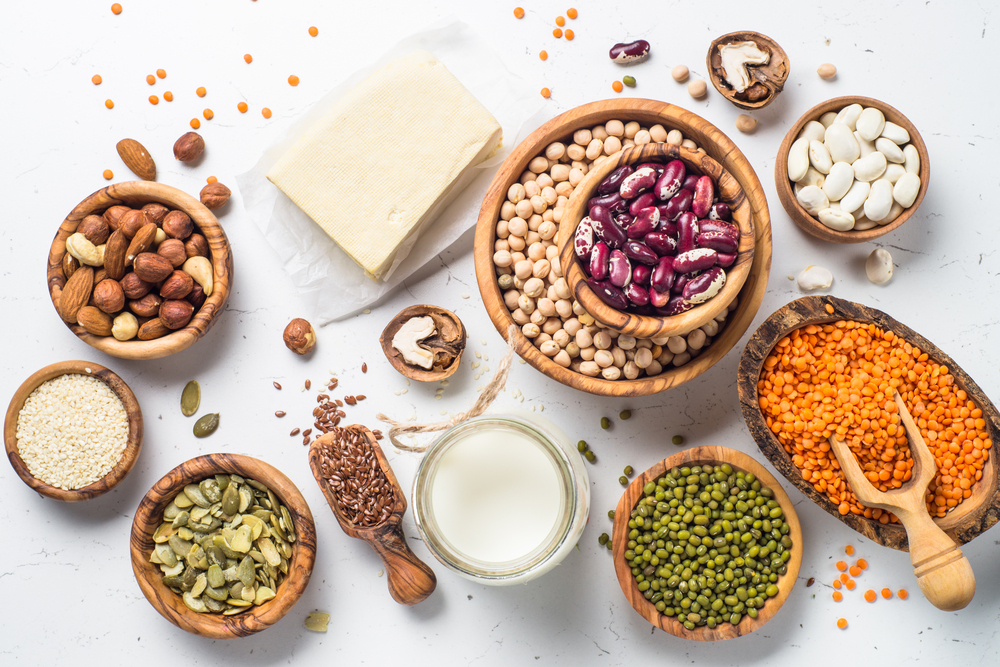Myth Busting: Vegetarian & Vegan Protein Sources
When people think protein they think MEAT! But when did these two words become synonymous? And how can someone consume enough protein, without getting anywhere near meat? It’s time to bust this myth!

Many people following a vegetarian or vegan diet commonly wonder if their diet lacks protein. However, an appropriate, well-planned vegetarian or vegan diet can provide you will all the protein you need as well as containing more fiber and less saturated fat than animal-based protein sources. There are tons of versatile plant-based protein sources that can help you reach your protein needs every day. Some of these foods include:
- Seitan: This gluten-based product resembles the look and texture of meat when cooked and contains approximately 25 grams of protein per ½ cup of seitan.
- Lentils: This versatile bean is packed with iron, folate, and fiber and can have about 18 grams of protein per 1 cup of cooked lentils.
- Tempeh: A soybean-based protein source that provides the body with essential amino acids and can contain up to 30 grams of protein per 1 cup of tempeh.
- Tofu: Another soybean-based protein source made from the process of pressing together bean curds and can contain up to 20 grams of protein per 1 cup of tofu.
- Spelt: This ancient grain has a hearty taste that can be used in pancakes, pizza dough, bread, cake and a variety of other recipes. It contains about 10 grams of protein per cooked cup of spelt.
- Quinoa: Identified as a “supergrain,” quinoa has a high fiber content, is naturally gluten free, and has wide variety of vitamins and minerals. On top of that, quinoa is a complete protein providing all essential amino acids and contains up to 8 grams of protein per cup of cooked quinoa.
These examples are only some of the protein-packed sources that can be consumed on a vegetarian or vegan diet.
Plant based protein sources benefit your health, wallet, and the environment. By increasing your intake of fresh plant based proteins, you naturally remove excess food additives, colorings, and preservatives, while gaining a variety of vitamins and minerals, healthy fats, and fiber. The nutritional benefits of vegetarian and vegan proteins help reduce the risk for chronic illnesses. Plant proteins also tend to be less expensive than animal proteins and require less processing and transport to reach the consumer. Also, the increased health benefits from plant based products could lead to less doctor visits and medications. In terms of the environment, plant based products require less energy and water to produce, and generates less greenhouse gas emissions compared to certain meat proteins.
Plant based eating puts an emphasis on plant-derived whole foods – it is not necessarily a vegan or vegetarian diet, but one where animal proteins serve as a supporting role. With some thought, knowledge, and creativity, plant-based foods can be all you need to hit your protein requirements, stick to your budget, and become more sustainable. Lettuce do our best in getting our plant based protein in!

